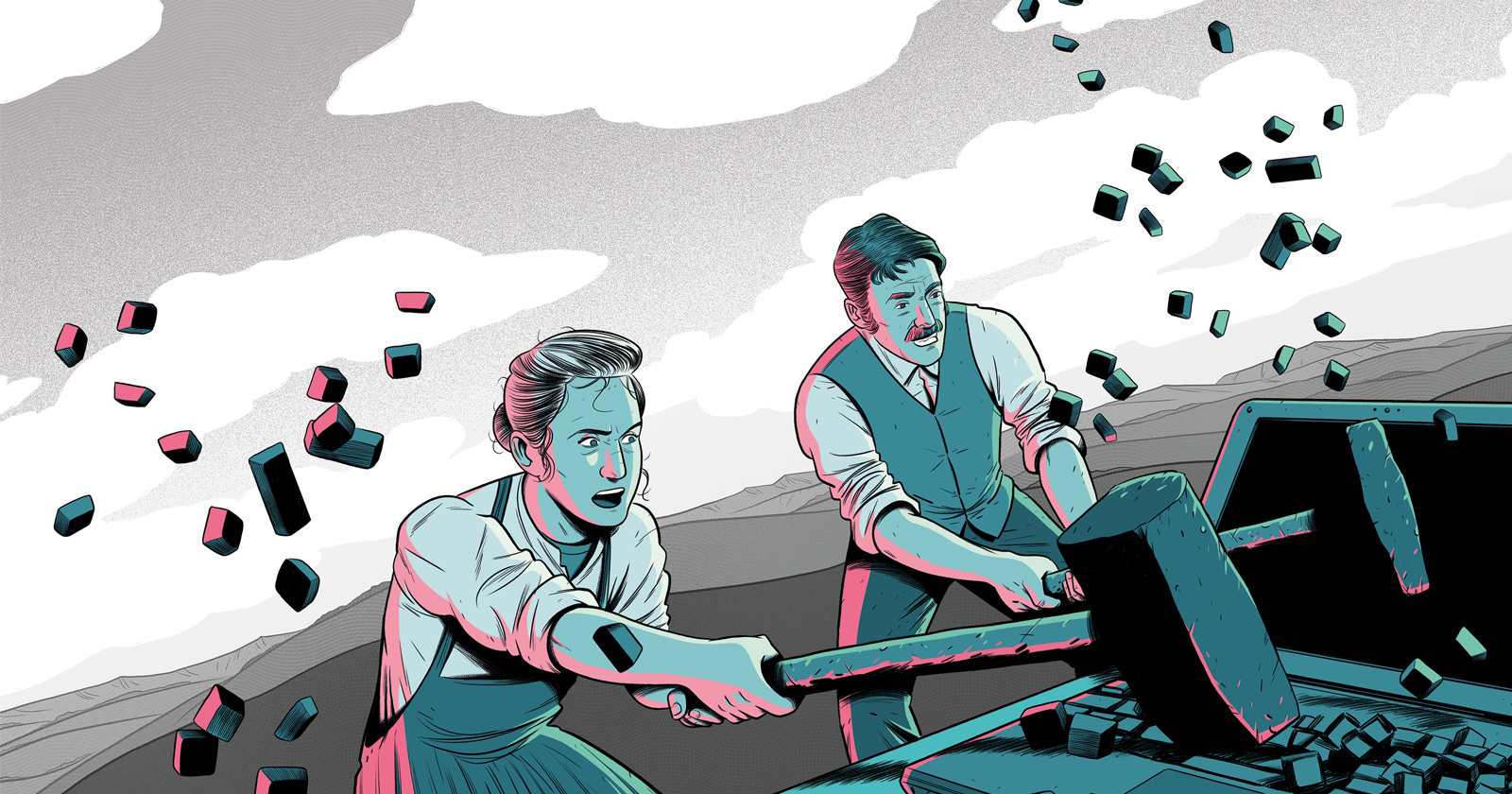This comic goes over the political history of technology in the workforce, showing that even automation to reduce manual labor was introduced as class warfare against the laborers, and that sabotage, protests and legal action were needed to preserve worker’s rights.



Good piece. I wish it went a little more into how efficiency gain from automation has only helped management and investors, not employers. That is one of the biggest reasons to reject a lot of the technology in my opinion, or at least demand new frameworks and better compensation. Even talk of changing how society works. Because if all the jobs are taken over by robots, then you leave an awful lot of humans with nothing to do and no way to support themselves. But on a broad general scale, machines should work for us and make our lives better rather than the other way around. If the result of a machine is that a few billionaires become trillionaires but thousands of workers become destitute of homeless, that’s not a good trade.
“If the result of a machine is that a few billionaires become trillionaires but thousands of workers become destitute of homeless, that’s not a good trade.” I wish I could upvote that sentence more than once.
Me too man, me too. Or at least come and get more people to think that way. I’m all for automation and technology and all that. And I love capitalism. But if a majority of the jobs can be done by machines, capitalism as a concept can start to fail.
And whatever system we have, should exist in service of the people of the nation, not the other way around. I believe in capitalism because I think it can be good for everybody (with the right regulations of course). But when you have automation to an extreme degree, that changes things. We’re just starting to see that with AI and creative professions, but once robots like Tesla’s Optimus hit the market the same concept will apply to almost any basic job. And it only expands from there.
There’s a very real possible future where production of almost anything is more or less free. But if the cost of production drops to zero, and the efficiency gains only go to the guy who owns the robot, we have a real problem.
This story may interest you-
https://marshallbrain.com/manna1
@SirEDCaLot That story is great. Thanks for that link.
Glad you liked it.
I would love to have a society where machines do the grunt work so the humans can enjoy our lives and devote ourselves to grander pursuits like art, music, science, space travel, and other forms of creation and discovery and nobody has to spend their days cleaning toilets (unless they want to).
I think one of the biggest hurdles to this is education. If we’re to be such an enlightened society we need to be smart enough to utilize that. And if we put kids through 12-16 years of school with the primary result of teaching these kids that learning isn’t fun and should be avoided when possible, that society will fail and you get an Idiocracy style future. And a lot of that will need generational change- take the kids of small-minded low-educated parents and teach them to be big-minded and crave knowledge. That’s easier said than done in many cases.
But of course the other big hurdle is economical. Some sort of universal basic income is a must in such a society, and it would involve a major rethink of how many of our markets work.